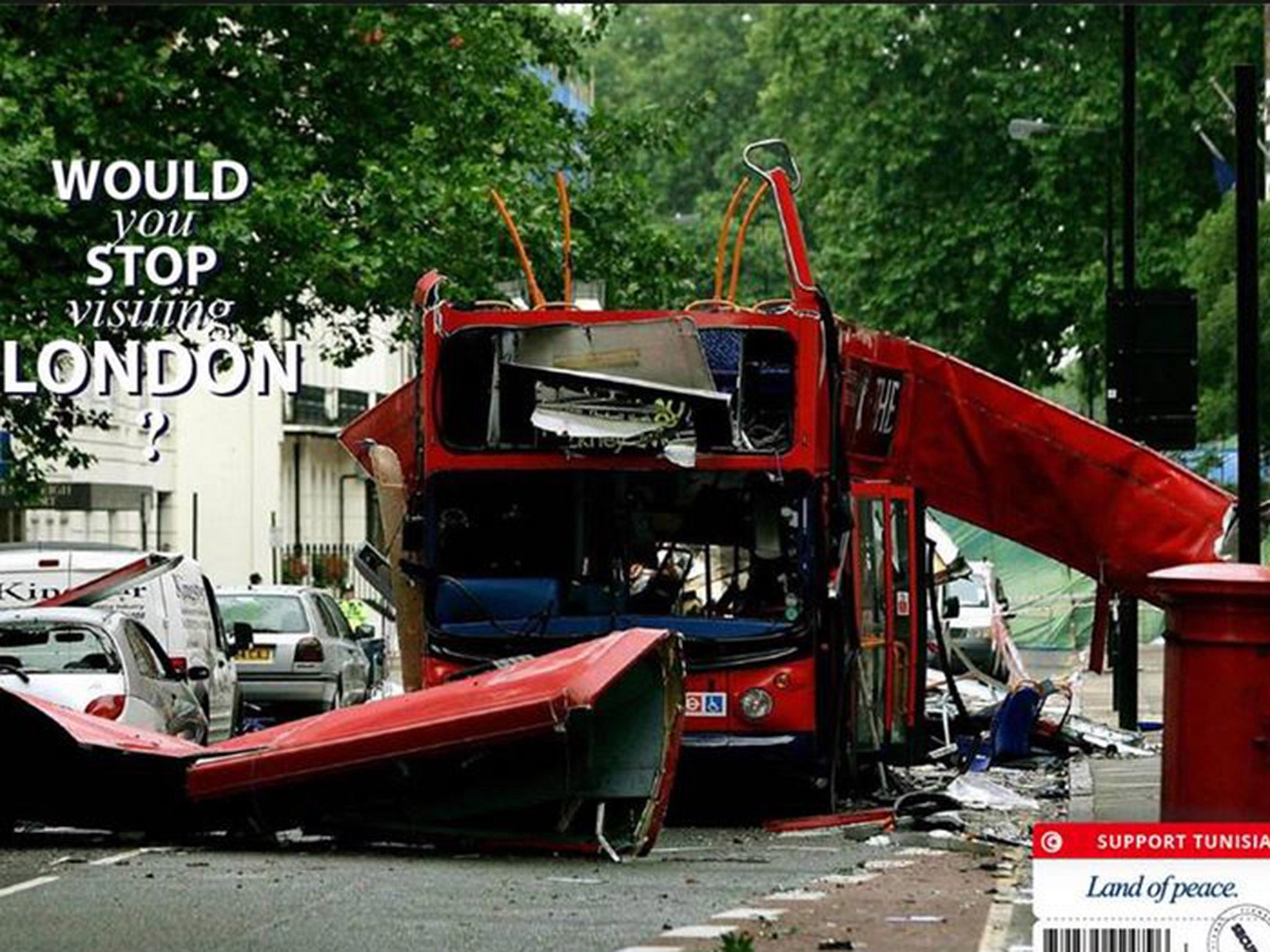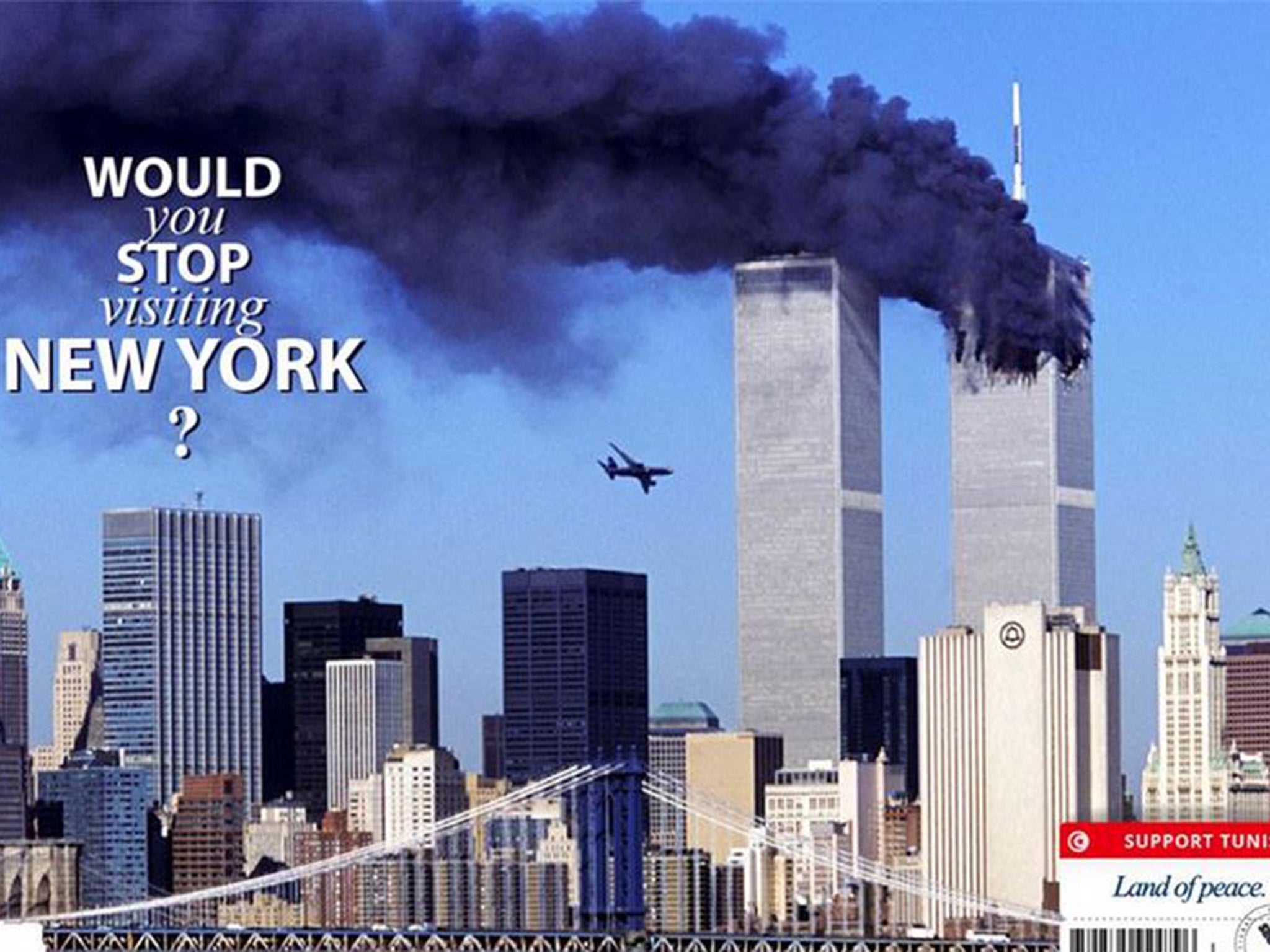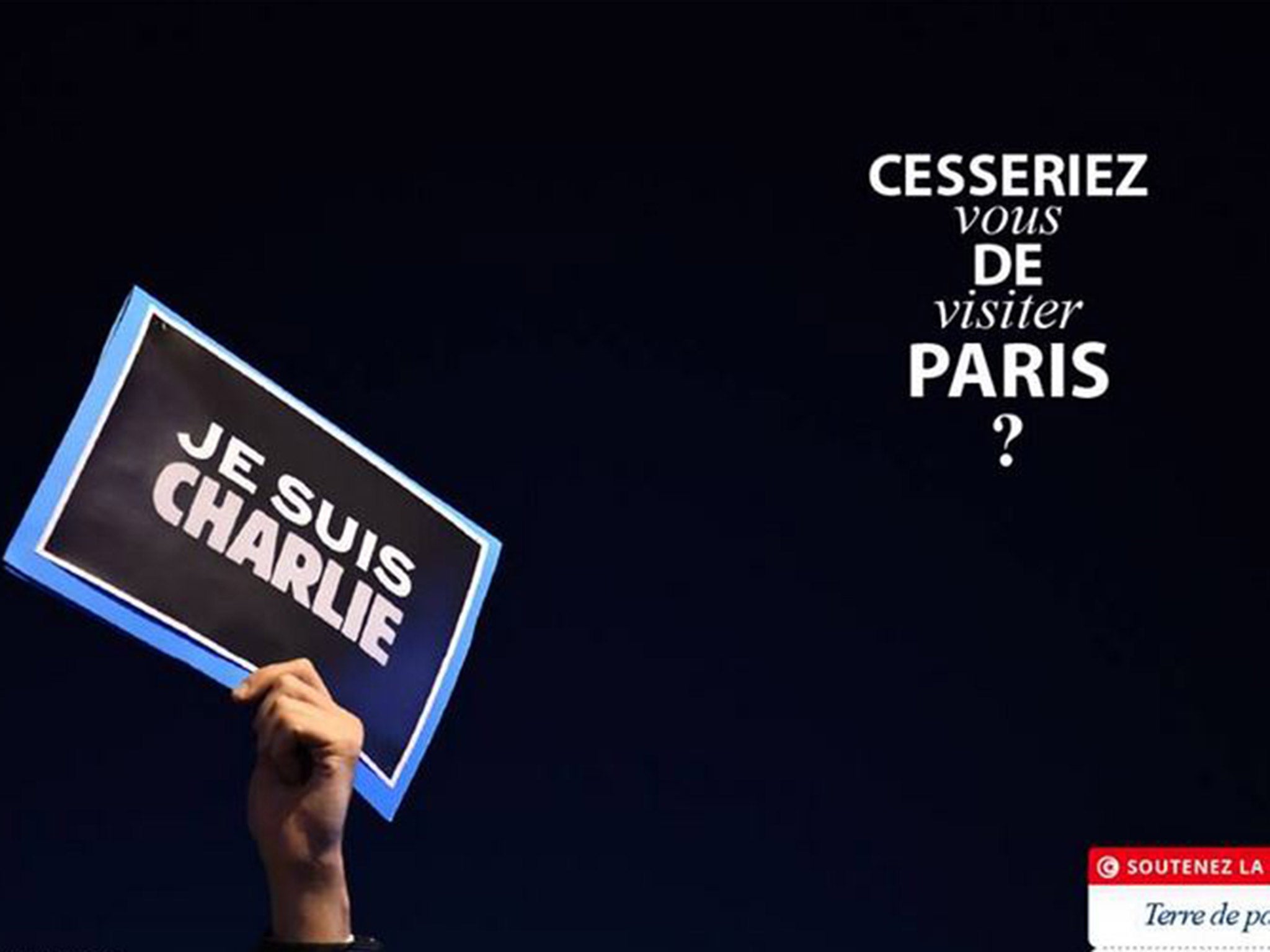Campaign uses London 7/7 bombing image as it urges tourists to support Tunisia
Other photographs used show the 9/11 attacks in New York and one representing the Charlie Hebdo killings in Paris

Your support helps us to tell the story
From reproductive rights to climate change to Big Tech, The Independent is on the ground when the story is developing. Whether it's investigating the financials of Elon Musk's pro-Trump PAC or producing our latest documentary, 'The A Word', which shines a light on the American women fighting for reproductive rights, we know how important it is to parse out the facts from the messaging.
At such a critical moment in US history, we need reporters on the ground. Your donation allows us to keep sending journalists to speak to both sides of the story.
The Independent is trusted by Americans across the entire political spectrum. And unlike many other quality news outlets, we choose not to lock Americans out of our reporting and analysis with paywalls. We believe quality journalism should be available to everyone, paid for by those who can afford it.
Your support makes all the difference.A provocative advertising campaign featuring images of terror attacks in Western capitals urges tourists not to abandon Tunisia in the wake of its own terror attack.
The campaign, launched by a Tunisian communications firm, asks "would you stop visiting" alongside images of London during the 7/7 bombings, New York during the 9/11 attack on the World Trade Centre and a placard signifying the Charlie Hebdo massacre in Paris.
A caption reads "Support Tunisia, land of peace".

Tunisia suffered its own terror attack just over a week ago when an Islamist gunman opened fire on tourists at a beach resort in Sousse, killing 39 people.
Selim Ben Hadj Yahia posted the campaign images on Facebook saying he created them in the wake of "the shock and sadness" of the Sousse attack, and that he hoped they spoke to "Tunisia's friends around the world".
The campaign has been praised by some, but criticised by others who said the attack in Sousse was different as it targeted tourists.

Tourism is an important part of the Tunisian economy, contributing about 7 per cent of Tunisia's GDP.
The industry nearly ground to a halt in the wake of the revolution that toppled Tunisia's former president Zine El Abideine Ben Ali in 2011 and sparked the region's so-called Arab Spring, but it picked up quickly in the following years.
In 2014 nearly 425,000 British tourists travelled to Tunisia.
Thirty of the 38 people killed in the Sousse attack were British holidaymakers.
Subscribe to Independent Premium to bookmark this article
Want to bookmark your favourite articles and stories to read or reference later? Start your Independent Premium subscription today.
Join our commenting forum
Join thought-provoking conversations, follow other Independent readers and see their replies
Comments